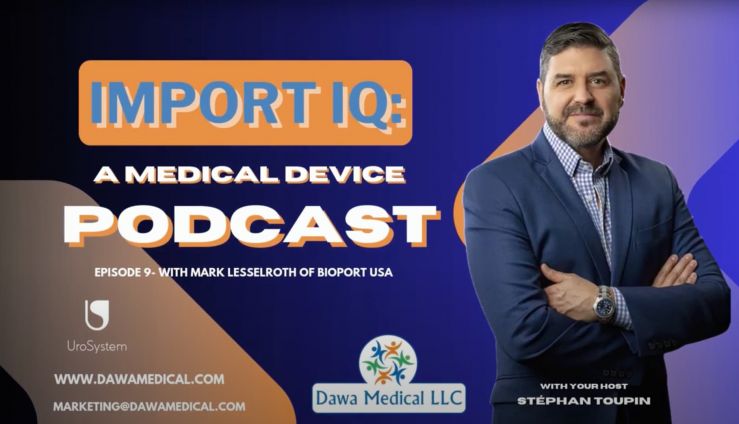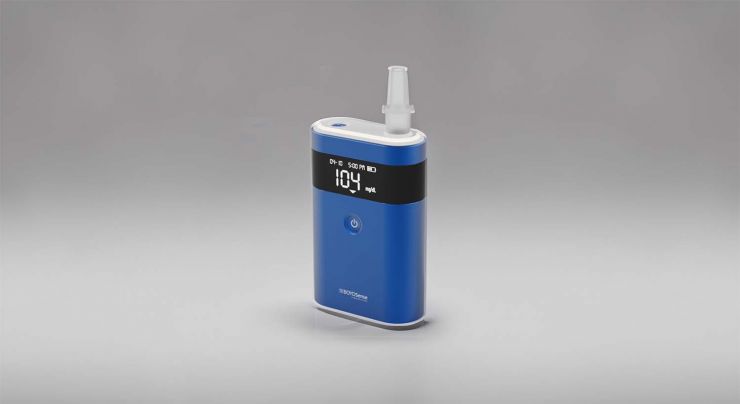Human in Motion Robotics, (HMR) a cutting-edge robotics company based in Vancouver, Canada, recently sought the expertise of BioPortUSA to guide them through the complexities of entering the U.S. healthcare market. Specializing in advanced exoskeleton technology, HMR has been pushing the boundaries of mobility solutions, driven by a vision to offer people with limited mobility a more independent and empowered future.
At the heart of HMR's mission are Dr. Jongwon Park and Dr. Sara Arzanpour, two renowned academics who have collaborated for years in the fields of robotics and bioengineering. In 2014, inspired by the desire to overcome the inherent limitations of traditional, non-self-balancing exoskeletons, they began developing a new generation of assistive devices that promise to revolutionize mobility for individuals with disabilities. Their technology is not just about movement but about restoring autonomy and improving the quality of life for users, making it an essential innovation in rehabilitation and personal assistance.
As HMR looked to expand its market and bring its breakthrough technology to the United States, they realized that navigating the intricate regulatory and reimbursement landscape would be critical to their success. That’s where BioPortUSA came in. Recognized for its deep understanding of the U.S. healthcare ecosystem, BioPortUSA specializes in helping international companies like HMR enter the U.S. market with confidence.
Strategic Guidance for Market Entry
BioPortUSA’s involvement began with a comprehensive market access strategy tailored to the unique challenges and opportunities of the U.S. healthcare system. Their first priority was to assess how HMR’s exoskeleton technology could be reimbursed by U.S. insurance companies, including private insurers and public programs such as Medicare and Medicaid. Given the highly regulated nature of medical devices, particularly those that promise to disrupt existing standards of care, HMR needed a clear path forward.
"Having had a personal connection with people who have lost some or most of their mobility, I was excited to assist in any way possible," stated Mark Lesselroth, CEO of BioPortUSA. "HMR's technology has the potential to transform lives, and we were determined to help them navigate the complexities of U.S. market access."
One of the key considerations was whether or not to pursue a new billing code through the Centers for Medicare and Medicaid Services (CMS). Developing a new code can be a lengthy and complex process, but it can also ensure more consistent and comprehensive reimbursement for innovative technologies. BioPortUSA conducted an in-depth reimbursement analysis, weighing the pros and cons of applying for a new code versus utilizing existing ones. This analysis was essential for determining which path would not only accelerate market entry but also ensure long-term financial viability for HMR.
A Partnership Poised for Impact
HMR's collaboration with BioPortUSA goes beyond just regulatory and reimbursement strategy—it’s about ensuring that cutting-edge technology reaches the people who need it most. By leveraging BioPortUSA’s expertise, HMR is now better positioned to make informed decisions about their U.S. launch strategy, with a clear focus on market penetration and adoption by healthcare providers.
For BioPortUSA, partnerships like these underscore the company’s commitment to facilitating global healthcare innovation. "When we partner with a company like HMR, we’re not just providing a service—we’re becoming part of a movement to improve lives through technology," said Lesselroth. "That’s why we take pride in every analysis, every recommendation, and every step forward."
As HMR prepares for its next steps in the U.S., BioPortUSA will continue to provide strategic support, ensuring that this groundbreaking exoskeleton technology can make a lasting impact on the lives of individuals who need it most.
Latest Articles



